We all know how important it is to stay hydrated, especially while walking for long periods of time, which can definitely cause some mild dehydration if you aren’t attentive.
To be healthy and enjoy your treks, you’re going to be aware and prepared of what you’re facing before you start your hiking journey. This includes knowing picking the right beverage to bring along with you.
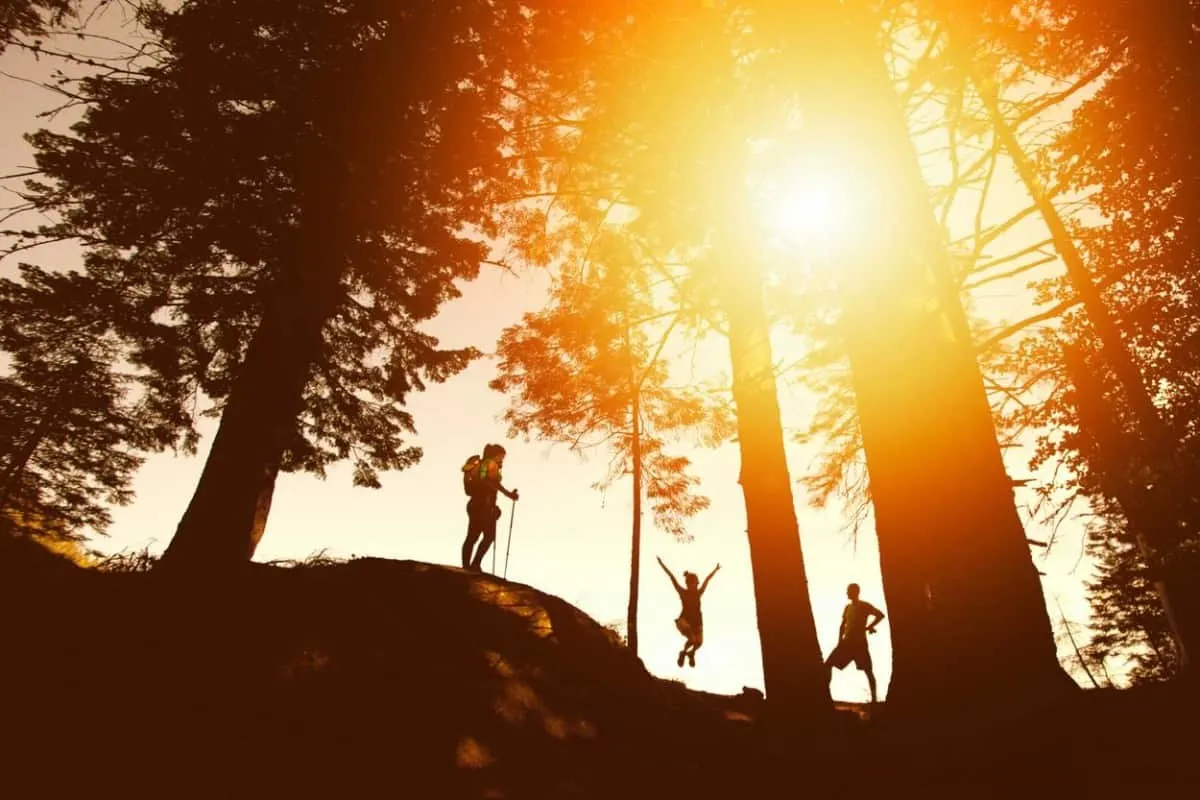
While you can’t get go wrong with plain old water, energy drinks are a possible choice to bring while hiking as they provide you with a decent boost, with some of them having certain ingredients that might be beneficial for your hiking experience.
As for which Energy Drinks to bring along with you, I would personally recommend something with moderate caffeine, low sugar, and some amount of electrolytes, to keep you feeling refreshed and energized throughout your hike.
So if you’re going on a fun hike and looking for the best energy drinks to sustain your energy throughout, you’re in the right place to start.
Contents
Are Energy Drinks Good For Hiking?
While not the most obvious choice, energy drinks can definitely prove their worth during long hikes, notably due to their caffeine, sugar, and ocassional electrolyte content helping to revitalise your overall being.
If you’re looking for proper hydration, you definitely shouldn’t stray far from good old water, as it’s a lot healthier for you then any other ‘specialty drink’, be it sports or energy drinks.
That being said, if you need a little extra for your hiking excursions, energy drinks are a solid consideration, with the best ones providing you with a decent amount of calories, caffeine and electrolytes to keep you going for a little longer.
For a more in-depth look at the energy drink ingredients that might help push you along your hiking experience, read on below:
Is Caffeine Good For Hiking?
Caffeine can prove to be beneficial to have for your hiking trip, so long as you’re aware of how much of it you’re actually having.

In adequate doses, caffeine is a beneficial supplement to utilize during long endurance exercises like hiking.
Caffeine stimulates the central nervous system, increasing spinal cord excitability and muscle fiber recruitment while reducing tiredness and muscular pain perceptions. It has been shown to increase physical performance in a variety of sports while also postponing mental exhaustion.
Caffeine binds to adenosine receptors, causing nerve cell activity to rise and blood vessels in the brain to constrict. As a result, caffeine prevents the brain from going through the normal phases that get tired.
Among caffeine’s benefits:
- Improves endurance
- Alertness
- Improves brain function
- May boost weight loss
- Boost long term-memory
Furthermore, according to a study published in the International Journal of Sports Medicine, caffeine has a positive impact on athletic performance at low altitudes and a larger impact at high altitudes.
It’s no surprise; therefore, that caffeine is frequently used in energy drinks.
The Right Amount of Caffeine
For healthy adults, the FDA recommends a daily caffeine level of 400mg as the safest bet, although you might want to stick to a lower amount depending on your personaly tolerance levels.
Though some energy drinks now include a lot of caffeine to compensate for their sugar-free blend, it still has long-term health risks, especially if you can’t take high amounts.
Some adverse effects of caffeine include:
- Insomnia
- Anxiety
- Mood swings
- Hallucination
- Palpitations
If you want to learn more about caffeine and how it works, here’s a video by National Graphic:
Sugar in Energy Drinks
Energy drinks containing sugar are great at giving you a burst of energy to keep your energy levels up, but the effects are usually short-lived.
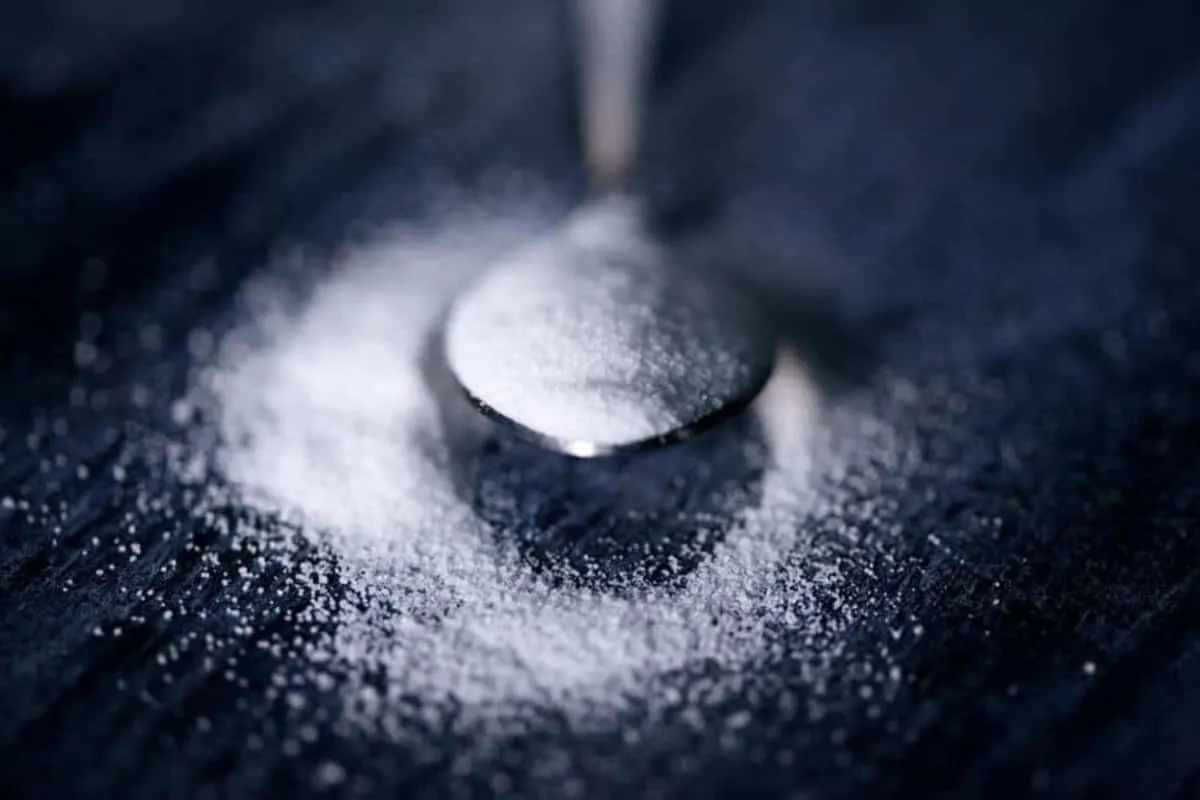
If you need something to keep your energy levels up during a hike, having a relatively sugary energy drink can definitely help prevent your blood sugar from getting to low, which is a possibility if you happen to over-exert yourself.
So what’s a good amount of sugar that can give you a decent boost without any long-term health problems?
If we examine the daily sugar limit, which is 24 grams for women and 36 grams for males, then any quantity less than that will suffice. So, while going overboard isn’t wholly bad, it’s still important to keep an eye on your consumption.
Just like overindulgence of caffeine, having excessive sugar does bring about notable side effects to your health, such as:
- Skin damage
- Tiredness
- Bloating
- Weight gain
- Diabetes
Do Energy Drinks Help in Hydration?
Energy drinks probably aren’t the best for keeping you hydrated to the number of ingredients that are often in them, not to mention the syrupy consistency they might have.
For proper hydration, water is your best bet, although energy drink with electrolytes may help to keep you hydrated as well.
Electrolytes are minerals such as potassium, calcium, sodium, and magnesium that help to maintain the body’s fluid equilibrium.
While some energy drinks may contain electrolytes, they can be sugary and contain little nutritional value, so it is still advisable to hydrate yourself with water rather than relying on energy drinks for hydration.
Energy drinks only have a short-term effect. In reality, after about an hour, the caffeine’s effects begin to wane, and you may experience a sugar crash at the same time. In addition, you will feel tired as your energy levels decline.
What Is Best To Drink While Hiking?
Personally, I find water to be the best drink to have for a hike, although beverages such as energy drinks and sports drink may also be beneficial depending on the individual.
If you’re skeptical about the amount of caffeine found in energy drinks and you think you can tolerate the amount of caffeine, you can always try some alternative in boosting your energy for hiking.
Here are some non-caffeinated beverages you can try that boosts and lengthen your endurance for a long hike:
- Water
- Electrolyte-infused water
- Pedialyte
- Gatorade
- Coconut water
These beverages are caffeine-free and will help you alleviate dehydration during your trekking.
How To Prepare For a Hike?
Drink Water Before The Trail
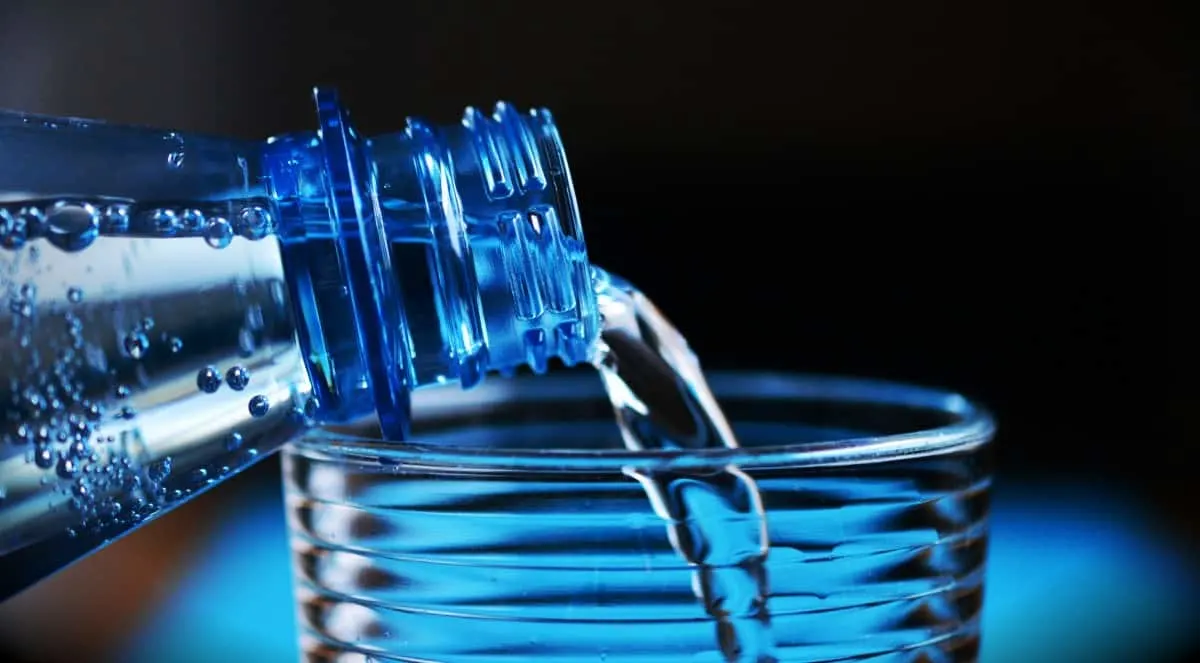
It’s best to have a high amount of water before starting your trek. A good beginning point is a couple of glasses of water, a cup of orange juice, and a tiny sports drink. The better hydrated you are right now, the less water you’ll need on the journey.
It’s great if you have a lot of water before you start your hike. A couple of glasses of water, a cup of orange juice, and a small sports drink are excellent places to start. You’ll need less water on the road if you’re well-hydrated right now.
Avoid Alcoholic Beverages
Drinking alcoholic beverages before trekking should be avoided at all costs, since they contribute greatly to dehydration. These beverages are especially bad to carry on a trek because they don’t adequately hydrate you and may dehydrate you.
Bring Sufficient Food and Water
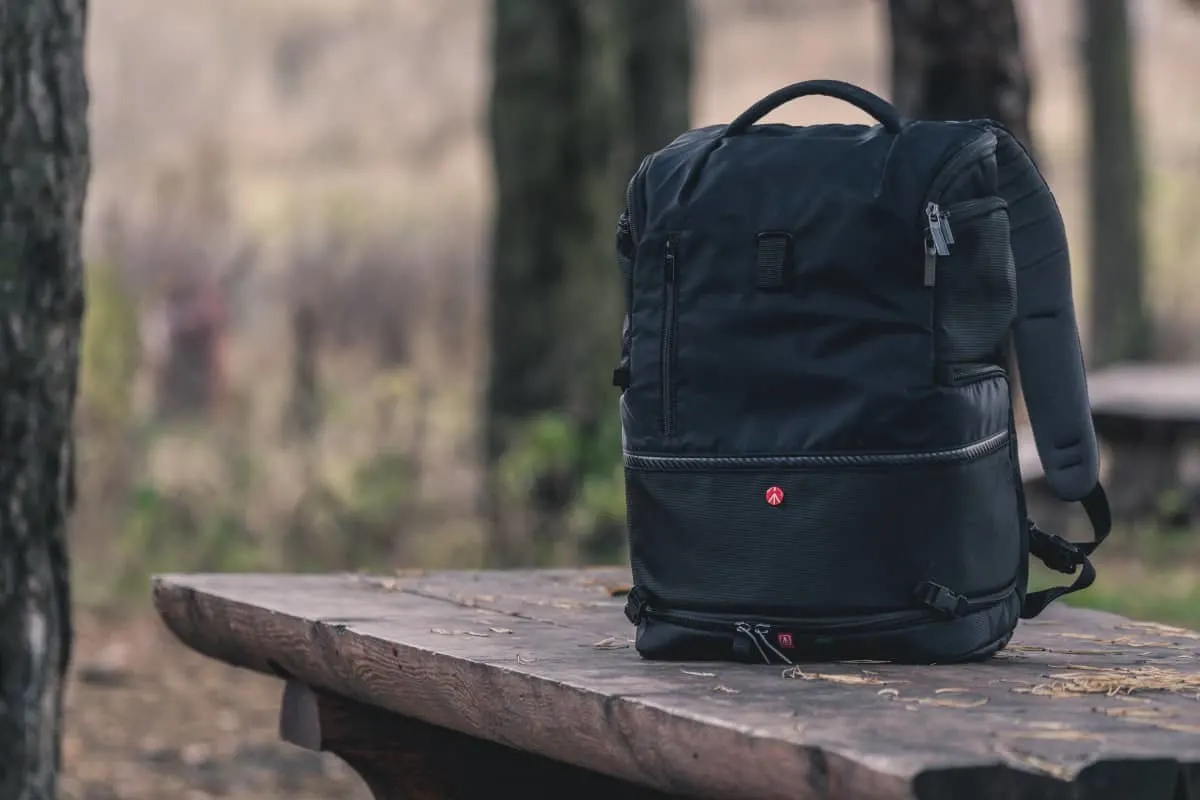
Anyone embarking on a hiking expedition should bring enough of food and drink with them. Water keeps you hydrated, while food provides fuel and salts (electrolytes) – both are necessary to avoid dehydration.
Unless the trek includes meal times, individually wrapped snacks, energy bars, dry food, and bottled water are usually sufficient for a day hiker.
To prevent being very unwell and dangerously incapacitated, remember to balance your meal intake with fluid consumption.
Stay Hydrated Even After Hiking
When you finish trekking, don’t stop drinking. Even after you’ve finished the hike, you should keep drinking fluids to replace water and electrolyte loss. Because thirst regularly underestimates your body’s fluid requirements, drink more than you believe you need.
If you want to learn more tips in preparing for a hike, here’s a video you can check out:
The Best Energy Drinks for Hiking
Now you have a clear insight on what is caffeine and how it works, let’s dive in to some energy drinks that can help you boosted on your hike.
To save you time and effort, I tried and evaluated a variety of energy drinks to create a list of the best energy drinks for hiking.
Let’s get started.
| Energy Drinks | Caffeine Content | Calorie Content | Sugar Content |
| Reign (16 fl.oz) | 300mg | 0 calories | 0g |
| Red Bull (8.4 fl.oz) | 80mg | 110 calories | 27g |
| Sneak Energy | 150mg | 12 calories | 0.5g |
| CELSIUS | 200mg | 10 caloires | 0g |
Reign
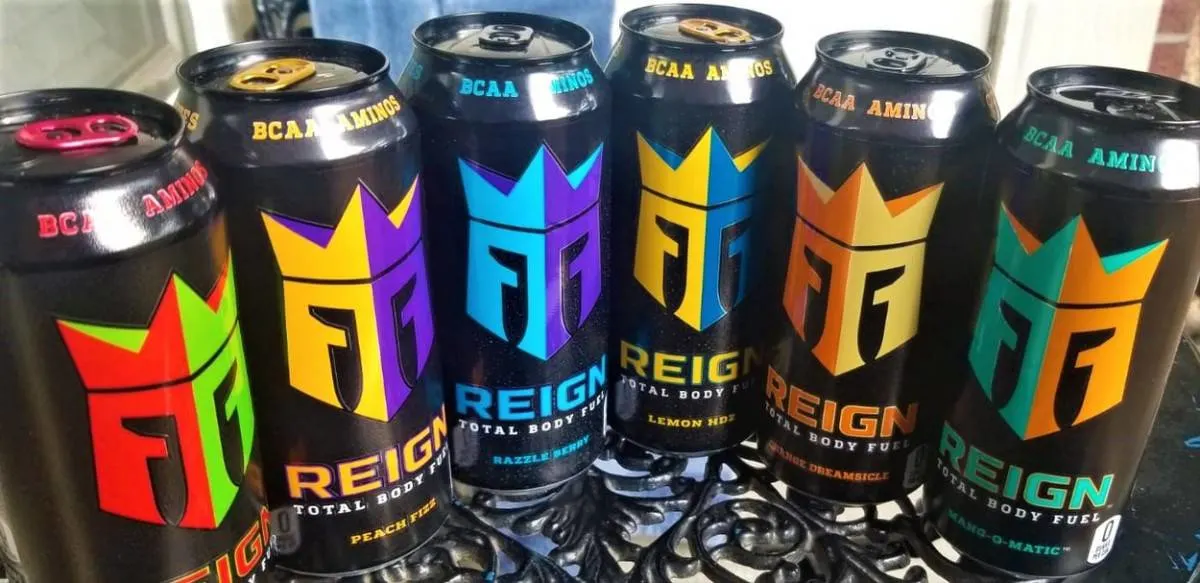
- Caffeine content: 300mg
- Calorie content: 0 calories
- Sugar content: 0g
If you’re looking for a caffeine boost and some additional electrolytes to fuel your hiking sessions, Reign Total Body Fuel is a pretty exemplary choice to pick from.
Reign has 300mg of caffeine, no sugar or calories, and contains electrolytes such as potassium and sodium, which is definitely useful in keeping you hydrated through those long treks.
That being said, Reign definitely isn’t for everyone; 300mg of caffeine is definitely a lot, especially if you’re not used to it. So be sure to know your own personal caffeine tolerances before diving into Reign proper.
Red Bull
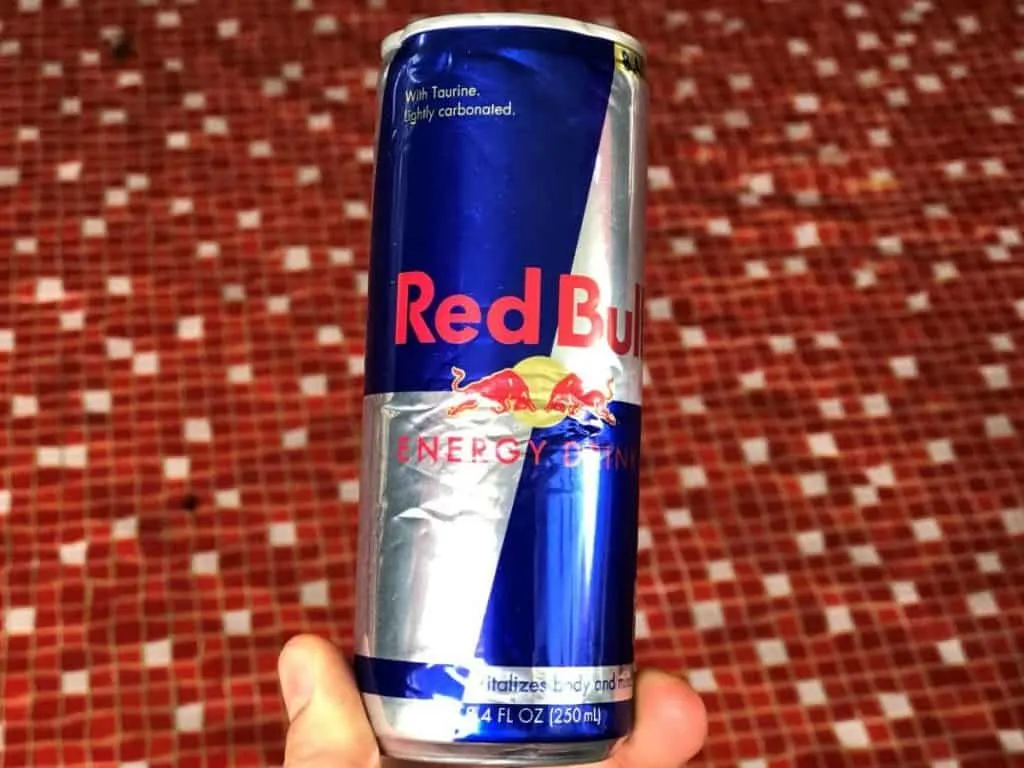
- Caffeine content: 80mg
- Calorie content: 110 calories
- Sugar content: 27g
An energy drink classic, your standard 8.4 fl.oz can of Red Bull can definitely help keep your energy levels up due to its moderate caffeine and sugar content, without going into the excessive territory.
One of Red Bull’s selling points is just its sheer availability, so if you’re looking for something quick to grab on your pit stop to a hike, you can probably find one of these on the shelves at your local convenience store at a fairly affordable price.
Sneak Energy
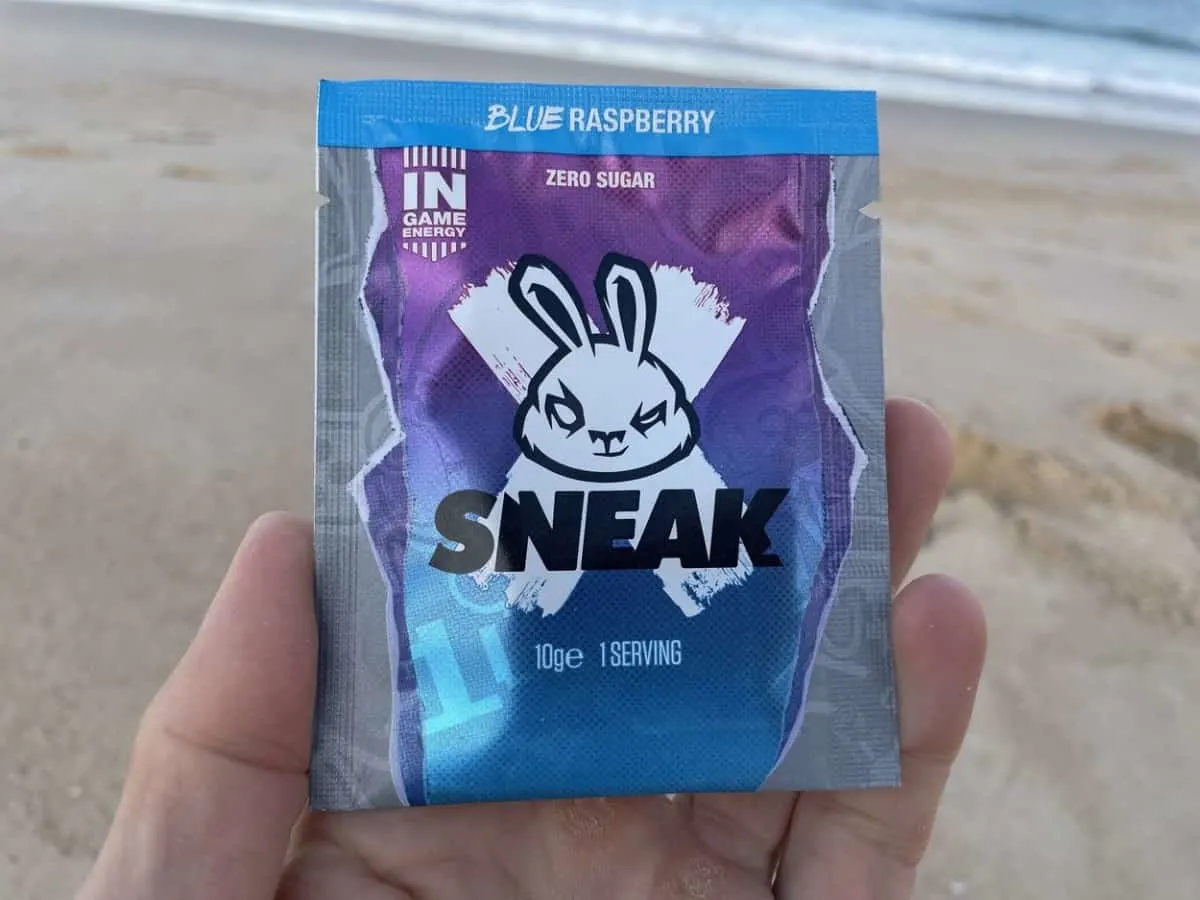
- Caffeine content: 150mg
- Calorie content: 12 calories
- Sugar content: 0g
Sneak Energy is mostly known as a gaming energy drink, but it does provide you with a decent amount of calories, caffeine, and hydrating properties that you might want to consider mixing into your bottle of water.
Apart from 150mg of caffeine, 12 calories and only 0.5g of sugar, Sneak also provides with plenty of other beneficial nutrients such as B-Vitamins, as well as electrolytes to keep you going, be it during a hardcore gaming session or a hike.
If you would like to know more about Sneak, head on over to my Sneak Energy Caffeine and Ingredients article, for a more detailed look at this fairly new gaming energy drink.
Conclusion
Hiking is a fun activity that also happens to be a great way to be fit and happy since it provides lots of sunshine, fresh air, and exercise.
Of course, one of the most important things with any exercise is to stay hydrated, If you’re looking for something other than water, energy drinks may prove helpful in keeping your overall energy levels at a decent state.
That being said, it’s best to have a bottle of water on you handy, as while energy drinks are great for a boost, they don’t exaclty provide much hydration in themselves.
It is also essential to make preparations before trekking, such as conducting research or reading articles like this one, to ensure that you are properly equipped and prepared.
